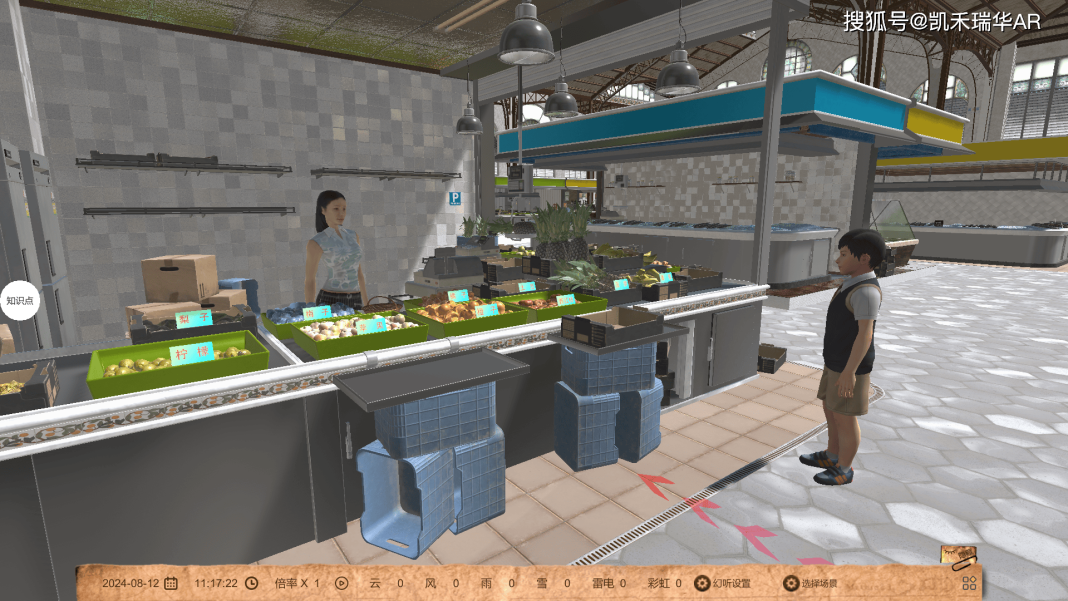In today’s increasingly aging society, dementia (also known as senile dementia) has become a significant issue affecting the quality of life of the elderly and family harmony. In the face of this challenge, how to effectively enhance the ability of caregivers and family members to recognize and respond to dementia symptoms has become a key issue that needs to be addressed. This article will outline specific methods and steps for virtual simulation training in the care of elderly individuals with dementia, aiming to provide new ideas for solving this problem from the perspective of improving care quality and family harmony.
1. Basic Knowledge of Dementia
Dementia is a syndrome characterized by a decline in memory, thinking, and behavioral abilities due to brain diseases. It is not simply a case of “getting old,” but a complex neurodegenerative disease that involves impairment in multiple cognitive areas. However, there are still many misconceptions about dementia in society, such as viewing it as a natural part of aging, ignoring early symptoms, and either overprotecting or neglecting patients. These misconceptions not only delay optimal treatment but also increase the burden on both patients and their families.
2. Operational Process of Virtual Simulation Training
To break these misconceptions and enhance the professional quality and coping skills of caregivers and family members, a virtual simulation training system for the care of elderly individuals with dementia has been introduced. This system highly simulates real-life scenarios, allowing learners to practice repeatedly in a safe, risk-free environment to master key skills.
1. Illness Recognition Stage
The training first guides learners to understand the different types of dementia (such as Alzheimer’s disease, vascular dementia, etc.) and their typical symptoms (such as memory decline, disorientation, emotional changes, etc.). Through the behaviors of patients in virtual scenarios, learners need to accurately identify the different stages of the illness, laying a solid foundation for subsequent care.
2. Preventive Measures and Daily Care
Based on the recognition of the illness, the training further teaches preventive measures and daily care techniques. This includes creating a safe and comfortable living environment for patients, reasonably arranging diet and daily routines, and conducting appropriate cognitive training. By simulating care operations in different situations, learners can deeply understand and master these key skills.
3. Emergency Plans and Psychological Support
In the face of sudden situations involving dementia patients (such as wandering off, emotional fluctuations, etc.), the training also provides detailed emergency plans and psychological support strategies. Learners will simulate the process of responding to these challenges in a virtual environment, learning how to stay calm, react quickly, and communicate effectively. At the same time, the training emphasizes the importance of psychological care and support for both patients and family members.
3. Real Cases and Feedback
To verify the effectiveness of the virtual simulation training, we collected a large number of real cases and feedback. Many caregivers and family members who participated in the training stated that it not only deepened their understanding of dementia but also significantly improved their caregiving skills and coping abilities. They can more sensitively recognize the needs and changes of patients and take more scientific and reasonable care measures, thereby effectively enhancing the quality of life for patients and promoting family harmony.
Conclusion
The introduction of the virtual simulation training system for the care of elderly individuals with dementia provides strong support for improving care quality and family harmony. Through efforts to simulate real scenarios, strengthen practical operations, and emphasize psychological support, we hope to help more caregivers and family members master key skills, break cognitive misconceptions, and collectively address the challenges posed by dementia. Let us work together to create a warmer and more caring living environment for individuals with dementia.


